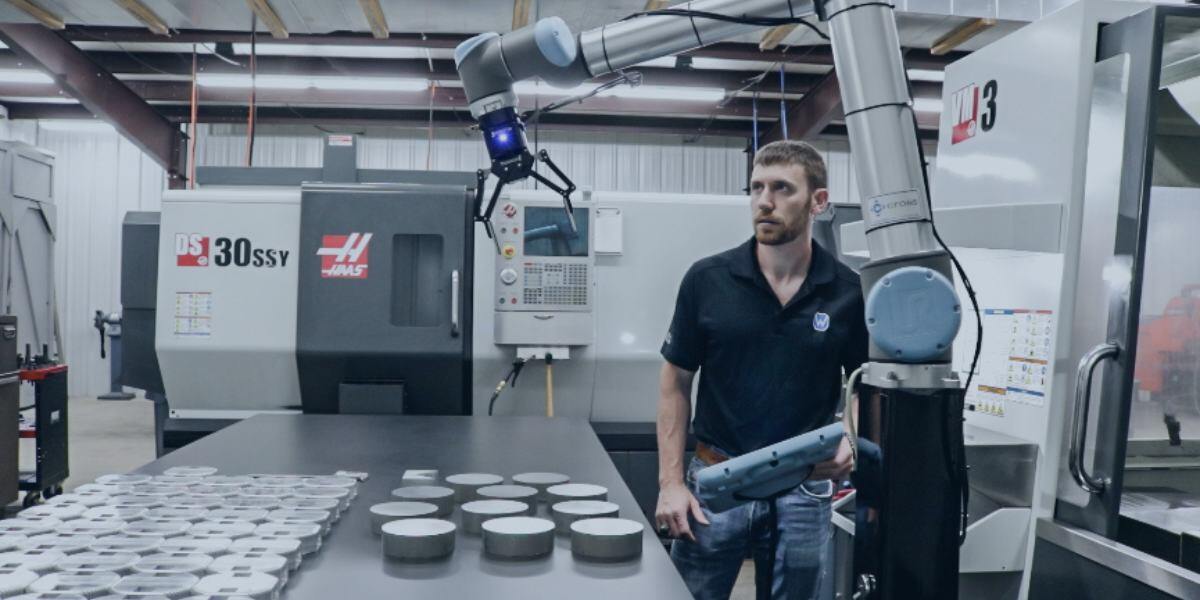At the heart of this new era lies a transformative player: collaborative robots, or cobots. These intelligent machines are not just tools but true partners that facilitate the seamless fusion of human ingenuity and robotic precision. As we step into this new chapter of industrial evolution, cobots are redefining the way we work, produce, and innovate.
Industry 5.0: A Human-Centered Revolution
Industry 5.0 marks a paradigm shift from the heavy automation focus of Industry 4.0. While the latter brought us smart factories, IoT, and AI-driven efficiency, Industry 5.0 puts humans back at the center of production processes. The goal is no longer to replace workers with machines but to equip them with tools that amplify their capabilities. Cobots embody this philosophy: they are designed to work alongside humans, not to isolate them.
According to the European Commission, Industry 5.0 aims to foster a sustainable, resilient, and human-centered industrial ecosystem. This vision is not just an ideal but a necessity in a world where personalization, sustainability, and agility are key competitive drivers.
Unlike traditional industrial robots, often confined behind cages to perform repetitive, high-volume tasks, cobots are built to interact safely and intuitively with workers. Equipped with advanced sensors, machine learning algorithms, and user-friendly interfaces, cobots are revolutionizing production lines.
For instance, in the automotive industry, cobots assist operators in assembling complex components. In healthcare, they enhance surgical precision and optimize hospital logistics. These robots do more than boost productivity — they elevate the role of humans in the value chain.
The Numbers Speak for Themselves: Explosive Growth in the Cobot Market
The collaborative robot market is experiencing exponential growth. Valued at $2.14 billion in 2024, it is projected to reach $11.64 billion by 2030, with a compound annual growth rate (CAGR) of 31.6%.
Why Cobots Are the Cornerstone of Industry 5.0
- Enhanced Human-Machine Collaboration: Cobots complement human skills by handling tasks that require precision, consistency, and endurance. Workers can then focus on creative problem-solving and strategic decision-making.
- Mass Customization: In a market where consumers demand personalized products, cobots enable large-scale production without sacrificing efficiency.
- Sustainability and Efficiency: Cobots optimize resource usage, reduce waste, and minimize environmental impact.
- Error Reduction on the Production Line: For example, Ford uses cobots for painting and quality inspections. In painting, cobots precisely maintain distances and angles, ensuring uniform application and reducing the need for rework. In inspections, their sensors and industrial cameras quickly detect minor defects, often invisible to the human eye.
Recent Developments in Robotics
- Universal Robots and "AI Accelerator": A turnkey set of hardware and software tools designed to simplify the development of AI-powered cobot applications.
- ABB Robotics and the OmniCore Platform: A faster, intelligent automation solution enabling full integration of AI, sensors, cloud systems, and edge computing to create some of the most advanced and autonomous robotic applications.
- Tesla and Its Human-Robot Hybrid Production: Tesla deployed two Optimus robots in one of its factories, marking a key milestone. These first autonomous robots are beginning to work directly on production lines, representing one of the first real-world examples of humanoid robots in industrial use.
Despite their potential, adopting cobots comes with challenges. The primary issue is the skills gap: workers must be trained to fully leverage these technologies. Companies need to invest in training to ensure a smooth transition.
Thinking About Integrating Cobots Into Your Production Lines?
Companies that embrace this technology don’t just gain productivity — they offer their employees more fulfilling roles while contributing to a more responsible production model.
At Revtech Systems, our robotics experts support you at every stage of your project. From custom design to on-site integration and staff training, we help you maximize your investment and unlock the full potential of collaborative automation. Contact us today to discuss your needs and discover how cobots can transform your production!
Sources : European Commission

